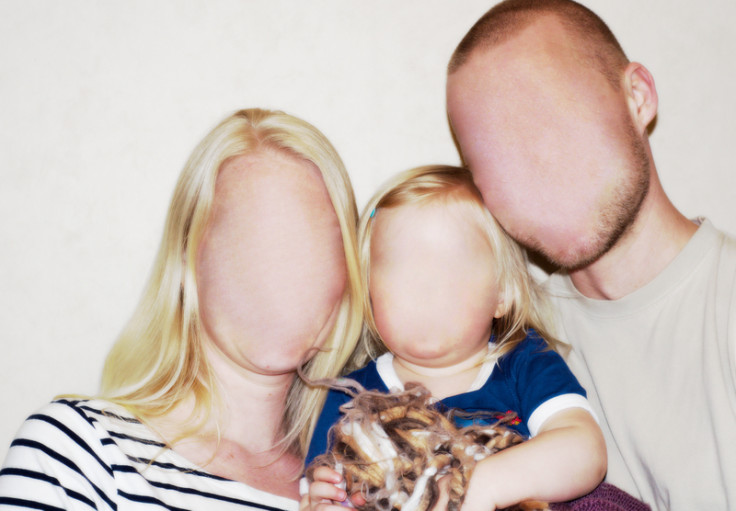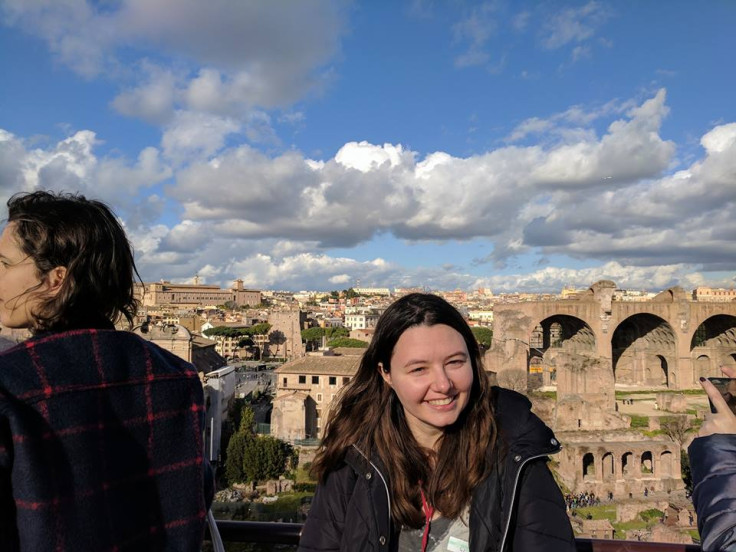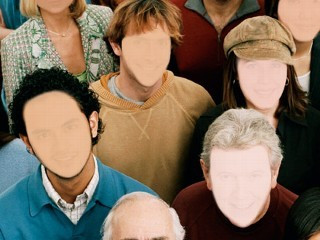Face blindness: All the things I like about having prosopagnosia
Stephanie Chase has a brain disorder which means she is not able to recognise her own face, or the faces of others.

At 21 years-old, I was diagnosed with developmental prosopagnosia, a chronic inability to differentiate between faces, also known as 'face blindness'.
While this disorder has received some media attention in recent years, it is still largely misunderstood. Unfortunately, most articles focus on how difficult it is to live without face recognition, which in my opinion, perpetuates the idea that sufferers should be pitied.
Prosopagnosia certainly comes with its challenges, but it also comes with its fair share of benefits, some of which may seem counter intuitive. Several in the face blindness community call these benefits 'stupid human tricks' and I have to agree. Here are just a few examples of these 'ProsoPros'.
Crowd navigation
On paper, I am the last person anyone would want to be searching for someone in a crowd of people, but 90% of the time, I find the person before my friends do. How? Instead of looking for a face, I look out for clothes, accessories and gait.
Once at a wedding, the groom and his brother looked so similar that the family, and even the bride, were having trouble telling them apart from a distance, especially when the sun had gone down and all that lit the dance floor were strings of fairy lights. However, one glance around the room and I could point out where the groom was - or wasn't - without fail.
Furthermore, I can tell when someone is missing from a large group without having to count. That said, I wouldn't be able to tell you who was missing, but at least the tour bus won't end up leaving someone behind!
Making friends
Making friends presents a challenge because of my difficulty in recognising the same person from one situation to the next. However, this same weakness is also a hidden strength when it comes to first impressions. It means I tend to be friendly to everyone just in case I've met him or her before. This increases my chances of making a good first impression if I've never met the person.

On the other hand, if someone makes a bad impression on me, I may not recognise them straight away the next time we meet. These multiple 'first impressions' can allow me to have a better understanding of his or her personality. A member of the prosopagnosia Facebook community suggested this can help us see through people with manipulative tendencies.
Social cues
Lacking face recognition often means you become more sensitive to social cues in order to understand what is happening during an interaction. This includes looking for the spark of recognition on the faces of other people to assure myself that I know them, and reading body language to determine emotion throughout a conversation.
Others with prosopagnosia are even more sensitive than I am and report being able to read the nature of relationships between strangers or identify another's occupation after just a single glance or short conversation. Elementary, my dear Watson.
Confidence

When I am out in public with my friends or family, I can just be myself and I don't have to be self-conscious about how I am acting. This is because, in my mind, I will never see any of the people who may be watching my crazy antics again. Even if they recognise me later and point and whisper, chances are, I wouldn't notice or wouldn't realise that it's me they're pointing at. Honestly, this is a huge confidence booster.
Additionally, TV shows and movies are rarely spoiled when I'm browsing the internet. People like to make gifs of pivotal scenes that may show a character's death, but most likely I won't recognise who it is. No online spoilers equals a happy life.
Dating
I am an obvious choice for a celebrity looking to date outside of their circle of famous people, namely, because I wouldn't realise if I had seen them in a movie and so would treat them like a normal human being. In fact, they would have to go out of their way to convince me that they were, in fact, famous.
Time travel
Besides making a great Alcoholics Anonymous councilor, I'd be a top pick to try out the first Time Machine. Think about it - as I travel through time, I may bump into another version of myself, but seeing as I wouldn't recognise her, the time-space continuum will remain intact and the universe won't implode!
Stephanie Chase has a Master's Degree in Clinical and Developmental Neuropsychology from Bournemouth University. She has presented to students, ranging from high school to graduate-level, and created a YouTube channel, ProsopAnonymous, to raise awareness and understanding about her disorder. She can also be found on Facebook and Twitter.





















